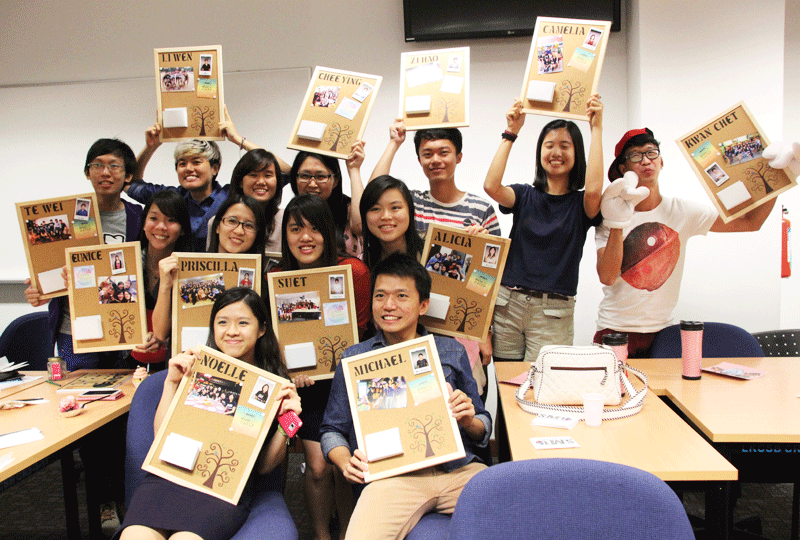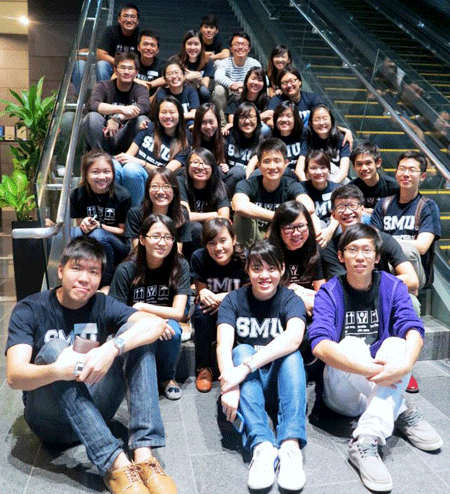
At SMU, we have a group called Peer Helpers – full-time undergraduate students trained in helping skills, who work closely with the professional counsellors at our Mrs Wong Kwok Leong Student Wellness Centre. Their role is to provide a listening ear and emotional support for their peers during times of need. Read on to find out more about peer helping, from two current peer helpers.
Have you ever felt stressed, stuck or confused, and didn’t know what to do or who to approach for help? Have you ever been approached by a friend who’s facing a sensitive or personal matter, but found yourself unsure of how to go about helping him or her?
Being students ourselves, we as Peer Helpers are trained to identify, listen, and provide emotional support to our friends. A big part of our role is to spread the word that it’s okay to seek help, and that people do genuinely care.

Among the Peer Helpers, many of us feel compelled to take part because of our desire to provide emotional support to friends in their trying times. In Alicia’s case, she realised the importance of peer support during university life at a time when a number of stressful factors – deadline pressure, group projects, mid-terms, difficult project mates, CCA commitments – all came together at the same time. After getting through this incredibly difficult period with the help of her friends, she found that she wanted to learn more about how she could support her peers during similar times of stress.
The requirements for becoming a Peer Helper
All aspiring helpers go through SSGS 003: Peer Mentoring and Facilitation (a 1 credit unit module) to acquire basic helping skills: listening skills, and the ability to express emotional support and empathy.
Beyond understanding the theory, aspiring helpers should also possess a genuine desire and willingness to help others. This is something that can’t be taught in a seminar!
Helper, help thyself
Through being Peer Helpers, we learnt that self-awareness is the first step to helping others. Each of us also gained a better understanding of how important it is to recognise and attend to our own personal issues and needs.
A big part of the process is in learning how to separate our own opinions from the process of helping someone else. During a helping session, we listen with the intention to understand, not to reply. We adopt a non-judgmental attitude and ask probing questions to better understand the issue, and to encourage the person seeking help to verbalise how he or she is feeling.

What are the returns on peer helping?
Josiah: A new way of seeing things. The pressures of school naturally cause many of us to focus inwardly on our own individual concerns and worries. The concept of peer helping offers a bigger perspective.
Personally, I think I have become more humble through the example of my peers and counsellors. Their passion and dedication to the work of helping people, regardless of their backgrounds, has been a constant inspiration to me.
Alicia: A healthier mental state. “You must first love yourself before you can love another.” I believe that being a peer helper will make you more aware of your mental health and the importance of maintaining emotional hygiene. It has also allowed me to be more open about seeking help when I need it.
All in all, I can confidently say that being a peer helper has made me a stronger person, with a greater sense of empathy than before. Whether you are someone in need of a listening ear or someone with a heart for helping others, I would encourage you to find out more about us on the SMU Peer Helpers Facebook page or simply drop by the Cosy Haven which is right beside the Mrs Wong Kwok Leong Student Wellness Centre.

